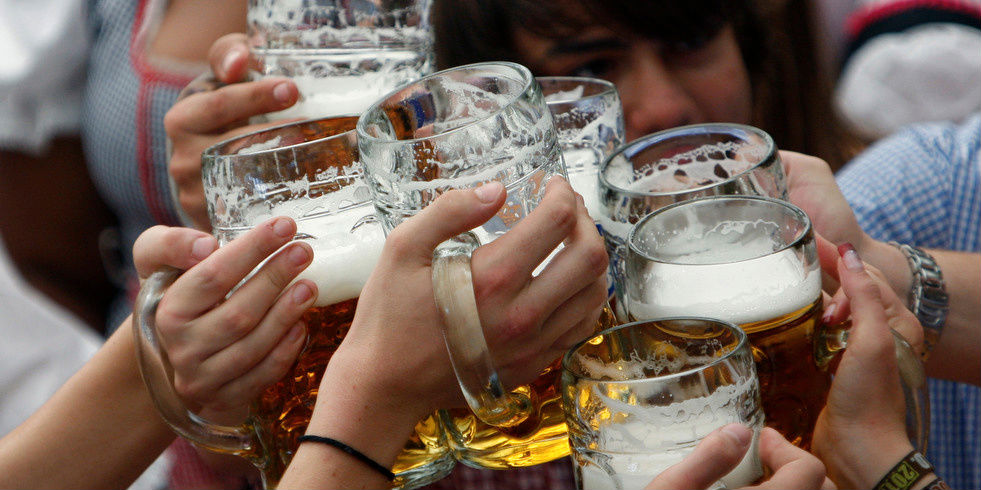To drink or not to drink? It’s a question not easily answered, at least when it comes to our health.
Videos by Rare
Although we’ve heard for years that moderate drinking is good for our hearts, several recent studies have questioned that long-held belief. And earlier this year, the World Health Organization issued a dire warning about cancer and alcohol. No amount of alcohol is safe, the report said.
So, if any alcohol raises our cancer risk, and if it might not offer a real benefit to our hearts, should we be drinking at all?
Cardiologist Michael Shapiro, DO, is not convinced that any amount of alcohol is good for us.
“It’s a common perception that alcohol, and red wine in particular, is helpful for the heart, but that perception is not based on any particularly good evidence,” Shapiro says. “If there is any benefit from alcohol — and that’s not entirely clear — it’s probably modest.”
Shapiro, who practices at Oregon Health and Science University in Portland, says that much of the research touting alcohol’s heart health benefits doesn’t show cause and effect. Does alcohol itself protect against heart attacks, or does the lower risk stem from some other factor or combination of factors? It’s not known.
“People who drink moderately also may have certain socio-economic factors and behavior patterns that promote health, and we’ve never been able to tease that out,” he says.
A recent BMJ review of more than 50 studies on alcohol and heart health supports Shapiro’s view. Researchers found that people with a form of a gene tied to lower levels of drinking had healthier hearts. That suggests that cutting down on drinking — even for light or moderate drinkers — benefits the heart.
Another recent study found that people who have as little as one or two drinks of wine or liquor may raise their odds of atrial fibrillation, a potentially dangerous form of irregular heartbeat.
Bright Side to ‘Healthy’ Drinking?
Like Shapiro, geriatrician Alison Moore, MD, MPH, is skeptical of studies about light to moderate drinking that tout health benefits but don’t show cause and effect. But she says research has shown that this amount of drinking may play a positive role in numerous conditions, from heart health to diabetes to dementia.
Recent studies continue to support alcohol’s benefits. In June, the authors of a study in the journalCirculation reported that men and women who have four to six alcoholic drinks (i.e. 5-ounce glasses of wine or 1.5-ounce cocktails) per week were, respectively, 20% and 44% less likely to develop a potentially fatal ballooning of the aorta.
And in April, early findings presented at a meeting of the National Kidney Foundation suggested that a little wine a day lowers the risk of chronic kidney disease. People who drank less than one glass of wine per day had a 37% lower risk than those who drank no wine at all.
“The data is convincing that truly moderate alcohol [drinking] does offer many health benefits,” says Moore, a professor of medicine and psychiatry at UCLA’s David Geffen School of Medicine. She researches alcohol’s effects on older groups of people. “For your average healthy person, it is not a bad thing.”
Cancer Risk
There’s less debate among researchers about the role alcohol plays in cancer risk. The WHO declared alcohol a carcinogen in 1988, and U.S. government health agencies have reached the same conclusion.
Alcohol is known to cause several types of cancer, including cancers of the mouth, pharynx, larynx, esophagus, colon-rectum, liver, and female breast. According to the National Cancer Institute, the more you drink, the greater your risk of these types of cancer. For example, people who have three and a half or more drinks a day double or even triple their odds of head and neck cancers.
For two cancers, though — renal cell, or kidney, cancer and non-Hodgkin lymphoma — studies have shown that drinking can result in a lower risk.
Still, an estimated 3.5% of U.S. cancer deaths can be traced to alcohol.
Unfortunately, says oncologist Cary Presant, MD, few people get the message.
“There’s a very low level of awareness of the risk,” says Presant, a clinical professor of medicine at the University of Southern California’s Keck School of Medicine. “We have to counsel our patients on the risks of alcohol. It’s something I talk about with my patients all the time.”
Alcohol requires a balancing act, he says. It may offer some protection for the heart, but, because alcohol affects many other organ systems, Presant says, it also raises the risk of other diseases, including cancer. For example, he says, two drinks a day raises a woman’s risk of breast cancer by 15%. The risk is much lower for women who have one or fewer drinks per day.
Presant advises people who drink to consider potential risk factors, such as a family history of certain cancers, that may help determine whether or not to abstain.
“Talk to your doctor about your family health history, your health habits, and, if necessary, about how to correct unhealthy drinking habits,” Presant says. He adds that all forms of alcohol appear to carry the same risks.
Shapiro says the health benefits are likely to be quite limited, especially when weighed against the potential for abuse. “If you drink, make sure you know what healthy drinking looks like,” he says.
One drink per day for women and two drinks per day for men is a mostly safe and potentially healthy way to unwind.
But if you don’t drink now, don’t reach for the bottle.



